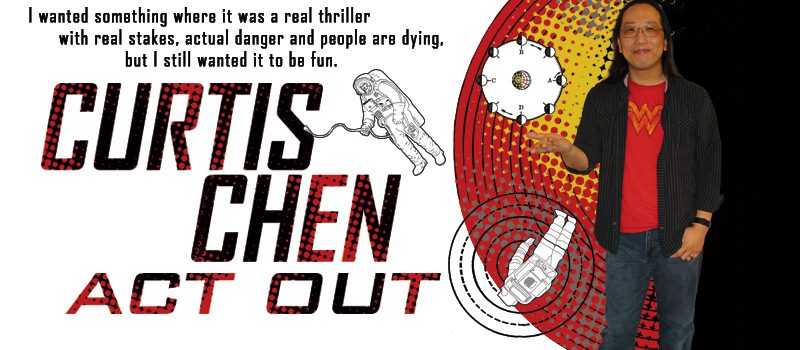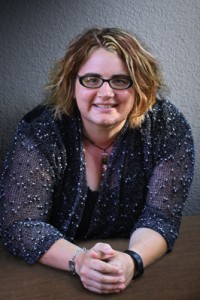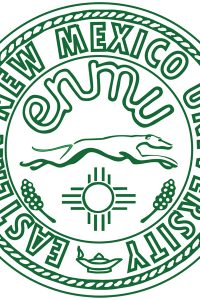Curtis Chen: Act Out

Curtis C. Chen (his middle name, Chih-Yu, is a phonetic spelling of his Chinese given name, 致宇) was born October 1, 1973 in Taiwan, and moved with his family to the US when he was five. They lived for one year in Cincinnati OH before settling in southern California. Chen attended Stanford and remained in the Bay Area after graduating in 1995, working as a software engineer at various companies, including Google from 2003-2008. He married DeeAnn Sole in 2005, and in 2008 they relocated to Vancouver WA, where Chen focused on fiction writing. He attended Viable Paradise in 2008, and Clarion West in 2014.
In 2008 Chen began writing and publishing flash fiction stories online as the “512 Words or Fewer” project and gathered over a hundred of them in self-published collection Thursday’s Children (2014). Chen began selling short fiction elsewhere in 2006, and has published more than 20 pieces in various magazines and anthologies, including Playboy. His debut novel Waypoint Kangaroo, a comedic SF thriller, appeared in 2016 and was a finalist for the Locus and Endeavour Awards. Sequel Kangaroo Too arrived in 2017.
Since 2017, Chen has served as the secretary for the Science Fiction and Fantasy Writers of America (SFWA).
Excerpts from the interview:
“In the early 2000’s my wife and I both were working these fairly high-stress jobs in the Bay Area. On our first wedding anniversary we were in Napa Valley on the wine train, a three-hour train that goes nowhere – it goes out and comes back, they feed you, you drink wine, and you look out the window. We had this conversation about what we wanted to do with our lives, and I talked about how I’d always wanted to be a writer. My mother was a public librarian for most of her career, so she really instilled that love for reading and books into my sister and me. All my life I read a lot of science fiction and fantasy. I had always been interested in writing, and in high school I was writing stories and sending them to magazines. I didn’t sell anything, and when I was in college, I got busy doing other stuff. I still wanted to be a writer, but I had this day job.
“At that time I was at Google. I started there in 2003, when it was about 1,000 people, and when I left in 2008, there were over 10,000 employees worldwide. There was a lot of growth there and a lot of change. I was moving to a new desk every six months, so I was spending a lot of time at the job, and also a lot of mental and emotional energy. I wanted to be a writer, but I felt like I couldn’t do it then. I said I wanted to take a few months off and just focus on writing. My wife DeeAnn is really supportive of my wacky ideas, but at first she said, ‘You can write when we retire.’ Then she was like, ‘Why should we wait until we retire?’ That was the thing that broke it open from ‘Wouldn’t this be nice,’ to ‘Let’s figure out how to actually do it.’
“We made a pretty decent amount of money, so we started figuring out what we could cut from our budget, and we did a really good exercise of looking at what we spent every month. Based on that, her idea was that we both should quit our jobs and take some time off to try something different. An important part of that was moving somewhere cheaper, which would also break our old habits. If we stayed in the Bay Area, we had a lot of friends we would be doing all the same things with, going out with them, and we’d still see the people we saw at work. She wanted to move somewhere cheaper and really make the change.
“It was a little scary. We changed everything at once. We made a spreadsheet of all the things we wanted in the place we were moving to. We didn’t have really strong family or other reasons to look at specific places. We were like, ‘Let’s look at what we want to do, and what we actually do.’ First thing was the cost of living. The Bay Area is one of the most expensive places in the US to live. Then we looked at the weather. We didn’t want to go to a place that was really hot or really cold or had severe weather incidents all the time. Then, is there a decent airport nearby? Because we do like to travel. We had a couple of friends in the Portland area, and we moved to the Pacific Northwest in 2008. My first book came out in 2016.
“I was very fortunate in that first year. When we moved out of the Bay Area we did a road trip starting in April. This was DeeAnn’s idea: ‘We’re not doing anything – we can go on a road trip and do some sightseeing.’ We took our two cats in our car and drove around the US for five months. We went to 25 different states, starting in San Diego and driving across the southern part of the country and then up the East Coast and back. We did a lot of cool stuff on that trip that we wouldn’t have gotten to do otherwise. If we fly somewhere for a thing, a convention or whatever, we’re just going to one place, but on a road trip you pass through a lot of places that are not sightseeing destinations but are really cool to see. All four of us, including the cats, blogged about the trip at ‘Travels with Our Cats‘.
“While we were traveling, I applied to the Viable Paradise Writers Workshop and got accepted. We moved into our apartment and literally three days later I left for the workshop, on the East Coast, and was there for a week. That kickstarted a lot of stuff for me mentally. I met a lot of great people there, and I was immersed in thinking about writing. Before that, my first formal writing workshop with a critique circle was in 1995 in my last quarter at Stanford. It was a writing seminar class so there were only maybe 15 students. It was the first time they had done something like that. It was in the creative writing department, so most of the courses were fairly literary stuff or poetry, but this was specifically a speculative fiction writing critique workshop, something Pat Murphy put together. She got Ursula K. Le Guin to come down and teach for the quarter. That was my first experience of a workshop and of Ursula K. Le Guin. It was amazing. That showed me what a really well-run workshop could be, because Pat and Ursula are great writers who are great teachers too. That also might have been one of the most drama-filled workshops I’ve done, partly because we were all so young. I made someone cry at one point, and we argued a lot. So I had that experience, but after graduation, with the jobs I was working I got really busy and I gave up a lot on writing. Right after I did Viable Paradise I came home and made a deadline for myself that I would write a new 500-word flash piece every week, and I did that for five years.
“Ideas are everywhere, so when people tell me, ‘I really can’t find an idea for a story,’ I’m skeptical. There are different ways people can take an idea and turn it into a story. Part of the notion behind giving myself a weekly deadline was that I wanted to produce something new – a new setting, new characters, whatever – on a regular basis. There are a lot of potential story ideas, and it’s on me to sit down and see what’s interesting me this week: what am I engaged with right now? Flash fiction was very good. I had to learn to turn the things around me into a story.”
Read the full review in the August 2018 issue of Locus.
 While you are here, please take a moment to support Locus with a one-time or recurring donation. We rely on reader donations to keep the magazine and site going, and would like to keep the site paywall free, but WE NEED YOUR FINANCIAL SUPPORT to continue quality coverage of the science fiction and fantasy field.
While you are here, please take a moment to support Locus with a one-time or recurring donation. We rely on reader donations to keep the magazine and site going, and would like to keep the site paywall free, but WE NEED YOUR FINANCIAL SUPPORT to continue quality coverage of the science fiction and fantasy field.







